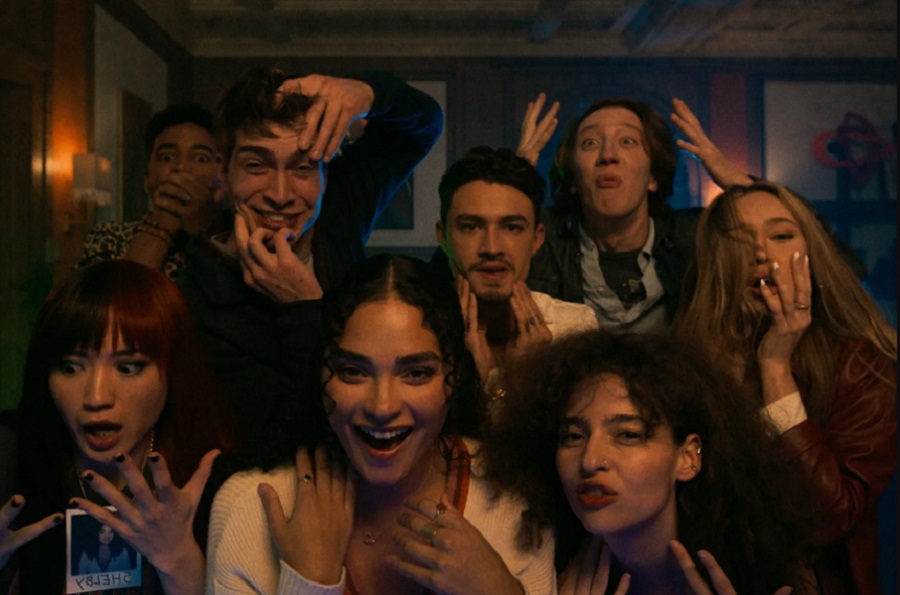Dark comedy It's What's Inside warns about social comparison

Published :
Updated :

Greg Jardin's directorial debut, It's What's Inside, is a mind-bending combination of comedy and horror, now streaming on Netflix. Jardin's transition from short films and music videos to feature-length projects shows his love for high-concept storytelling.
In It's What's Inside, Jardin explores how human emotions and identity are shaped, drawing from his thoughts on the social pressures and anxieties of modern life.
The film focuses on our obsession with looks and the constant comparison that happens in today's social media world. It acts as both entertainment and a warning about the hidden dangers of envy and how we see ourselves in a time of constant online connection.
The film follows a group of old college friends reuniting before Reuben's (Devon Terrell) wedding. The group includes Cyrus (James Morosini) and Shelby (Brittany O'Grady), a couple facing relationship issues, along with Brooke (Reina Hardesty), Dennis (Gavin Leatherwood), Maya (Nina Bloomgarden), and influencer Nikki (Alycia Debnam-Carey).
Their dynamic changes when long-estranged friend Forbes (David Thompson) arrives with a mysterious suitcase and a strange game that involves body-swapping, forcing them to confront each other's insecurities and desires.
The body-swapping game by Jardin explores the psyches of characters, revealing inner conflicts and unspoken longings. The game begins with light-hearted humour, but as the night progresses, darker themes emerge, such as envy and inadequacy.
Shelby struggles with her jealousy towards Nikki's perfect online image while Cyrus contemplates his attraction to the influencer. The movie forces the audience to confront uncomfortable truths about how people perceive and compare themselves to others.
The plot revolves around the body-swap concept, which raises the question of what would happen if we could transform into someone else and achieve fulfilment. As the night goes on, the stakes rise, revealing the characters' manipulations, betrayals, and resentments. The ultimate question is: Can they find their way back to themselves before the game's consequences become irreversible?
It's What's Inside is a social commentary that critiques the dangers of constant social comparison, offering insight into how people hide their true selves behind constructed identities. However, its impact on deeper questions of gender identity, sexuality, and societal norms is reduced due to the omission of cross-gender swaps.
Despite this, the film succeeds in creating an engaging narrative with depth, and the actors do a commendable job of mimicking each other's mannerisms during the body swaps, creating moments of both comedy and tension.
Alycia Debnam-Carey stands out as Nikki, transitioning her character from an image-obsessed influencer to someone with deeper insecurities. At the same time, Morosini's portrayal of Cyrus captures the absurdity of his ambivalence and eventual unravelling.
However, some relationships, particularly between Shelby and Nikki, could have been explored further to make the film's commentary on social comparison more potent. Overall, It's What's Inside is a powerful exploration of these complexities.
Despite these shortcomings, It's What's Inside remains an engaging and thought-provoking watch, a modern parable about the risks of constantly measuring our worth against others. The film asks: Can we ever truly be content with ourselves, or will the urge to live someone else's life always cloud our judgment? In Jardin's universe, the answer may be more terrifying than we think.


 For all latest news, follow The Financial Express Google News channel.
For all latest news, follow The Financial Express Google News channel.